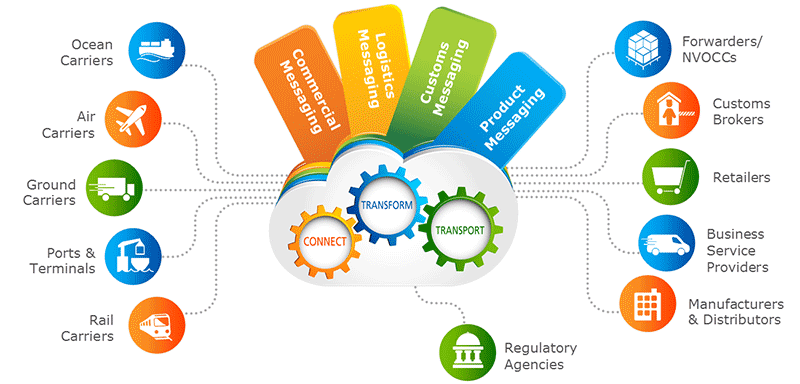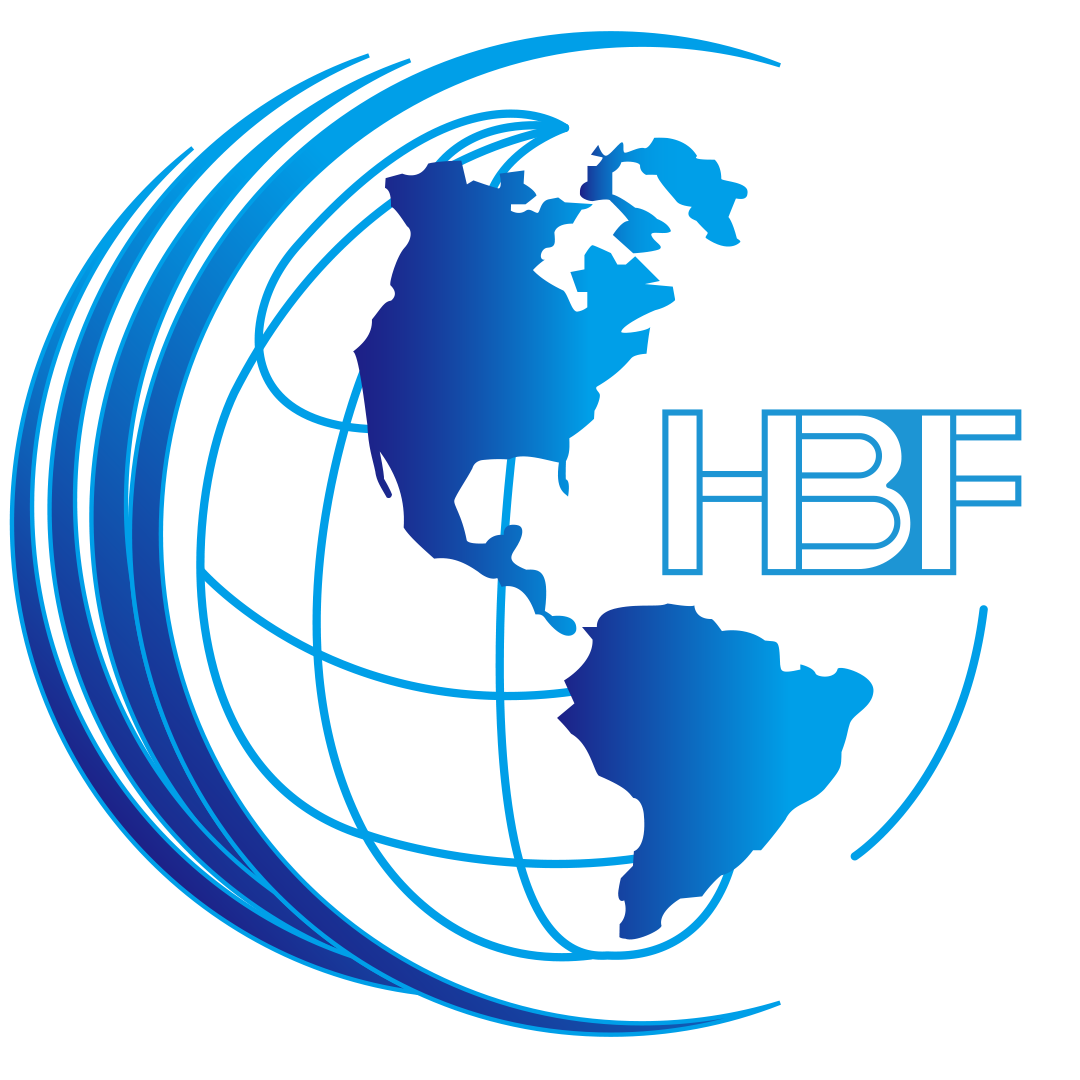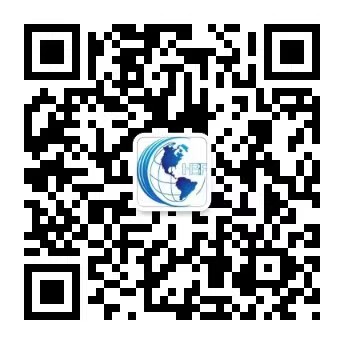国家封堵买单出口政策:深度解析、影响及应对策略
2025 年 7 月 7 日,国家税务总局发布《关于优化企业所得税预缴纳税申报有关事项的公告》(2025 年第 17 号),该公告自 2025 年 10 月 1 日起施行,其中一项关键规定是:以代理(含市场采购贸易、外贸综合服务等方式)出口货物的企业,预缴申报时要同步报送实际委托出口方基础信息和出口金额情况。若企业未准确报送,将作为自营方式,由其承担相应出口金额应申报缴纳的企业所得税,实际委托出口方指货物实际生产销售单位。这一政策的出台,意味着国家对 “买单出口” 行为实施了更为严格的管控,其影响深远,值得进出口企业和物流行业高度关注。
一、政策背景与目的
(一)买单出口的运作模式
买单出口,是指一些不具备进出口资质的企业或个人,通过购买第三方的出口单据(如报关单、发票等),以第三方名义申报出口货物的行为。在这种模式下,实际货权与报关主体分离,通常涉及复杂的单据流转和资金往来,实际出口方往往借此逃避正规的进出口流程和税务监管。
(二)买单出口的危害
- 税收流失:企业通过买单出口,隐瞒真实出口收入,导致国家增值税、企业所得税及附加税费大量流失。例如,一些企业伪造或购买通关单证,将出口收入不入账,直接损害了国家税收利益。
- 市场秩序混乱:这种违规操作破坏了公平竞争的市场环境。合法经营的企业需承担高额合规成本,而通过买单出口的企业则以低成本获取竞争优势,扰乱了市场价格体系和正常的贸易秩序。特别是在大宗产品领域,如钢材等,买单出口可能导致市场供需失衡,价格波动异常。
- 法律风险:买单出口行为常伴随虚假贸易、票据造假等违法行为,一旦被查实,企业负责人可能面临严重的法律后果,包括刑事处罚。根据《刑法》相关规定,虚开增值税发票、逃税等行为达到一定标准将构成犯罪。
(三)政策目的
国家出台封堵买单出口政策,旨在规范进出口秩序,加强税收监管,维护公平竞争的市场环境,推动外贸行业健康、可持续发展。通过明确代理出口企业的申报责任,实现对出口业务的精准监管,确保每一笔出口业务都能在合法、合规的框架内进行。
二、政策核心要点解读
(一)申报责任明确
代理出口企业在预缴申报时,必须准确报送实际委托出口方的基础信息和出口金额情况。这一要求打破了以往买单出口中货主信息模糊的局面,使得税务机关能够直接追踪到出口业务的实际生产销售单位,实现了对出口业务全链条的穿透式监管。
(二)违规责任界定
若代理企业未准确报送实际委托出口方信息,该笔出口业务将被视为代理方的自营业务,由代理方承担相应出口金额应申报缴纳的企业所得税。这一严厉的追责机制大大提高了代理企业的违规成本,从根本上遏制了代理企业参与买单出口的行为。
(三)与其他政策协同
此前,国家税务总局、财政部、商务部、海关总署、市场监管局五部门已联合印发相关公告,对存在伪造、变造、买卖报关单,虚构出口业务、虚报少报货值、逃避缴纳税款等违法行为的企业进行打击。此次国家税务总局发布的 17 号公告,与前期政策形成协同效应,进一步强化了对买单出口等违规行为的监管力度。
三、对进出口企业的影响
(一)合规成本增加
- 内部控制体系建设:长期依赖买单出口的企业,需重新构建内部控制体系,确保货权、票据、资金流的一致性。这需要企业投入更多的人力、物力和财力,包括招聘专业的财务和合规人员,建立完善的财务核算和单证管理流程。
- 资质申请与维护:为实现合规出口,企业可能需要申请进出口资质,涉及工商登记、海关备案、税务登记、外汇管理等多个环节,手续繁琐,且后续还需持续维护资质,确保符合相关监管要求。
- 税务申报与管理:企业需更加规范地进行税务申报,准确核算出口收入,按照规定缴纳企业所得税等税费。同时,还需应对税务机关更为严格的税务稽查,增加了企业的税务管理成本。
(二)业务模式调整
- 转向正规代理出口或自营出口:企业需寻找合法合规的代理出口企业合作,或者自身申请进出口权开展自营出口业务。这意味着企业要重新建立业务渠道,与新的合作伙伴进行沟通和协作,可能面临业务磨合期和市场适应期。
- 优化供应链管理:为满足政策对货物流、资金流、票据流一致性的要求,企业需要对供应链进行全面优化,加强与供应商、货代、报关行等各方的信息共享和协同合作,确保整个供应链的透明化和可追溯性。
(三)市场竞争力变化
- 短期内竞争力下降:在企业进行合规转型的过程中,由于成本增加和业务调整,可能会在短期内影响企业的市场竞争力。产品价格可能因成本上升而提高,导致在国际市场上的价格优势减弱。
- 长期来看有利于可持续发展:从长期角度,合规经营有助于企业树立良好的品牌形象,增强客户信任度,同时能够享受国家相关的政策支持和优惠措施,提升企业的可持续发展能力。例如,合规企业在申请出口退税、参与政府项目招投标等方面具有明显优势。
四、对物流行业的影响
(一)货代企业面临业务调整
- 业务量减少:部分依赖为买单出口企业提供服务的货代企业,其业务量可能会大幅下降。由于买单出口被严格限制,相关企业的出口需求减少,货代企业的揽货难度增加。
- 服务模式转变:货代企业需要调整服务模式,加强对客户资质和业务真实性的审核。在为客户提供物流服务时,需确保客户的出口业务符合政策要求,避免因客户违规而牵连自身。例如,货代企业可能需要协助客户完善进出口手续,提供合规咨询服务等。
(二)报关行风险增加
- 责任加重:海关总署相关规定要求报关行对报关单真实性负责,货代、货主需连带承担法律责任。在政策封堵买单出口的背景下,报关行面临的法律风险显著增加。若报关行参与或协助买单出口行为,一旦被查处,将面临严厉的处罚,包括罚款、暂停报关业务甚至吊销报关资质。
- 业务合规审查加强:报关行需要加强对报关业务的合规审查,对客户提供的报关资料进行严格核实,确保报关单信息与实际货主、货物情况一致。这要求报关行投入更多的人力和时间成本,提高报关业务的精细化管理水平。
(三)物流行业整合加速
- 行业洗牌:随着政策对买单出口的打击,一些不规范的中小物流企业可能因无法适应政策变化而被淘汰,物流行业将迎来新一轮的洗牌和整合。大型、规范的物流企业凭借其完善的服务体系和合规管理能力,将在市场竞争中占据更有利的地位。
- 资源优化配置:行业整合有助于实现物流资源的优化配置,提高物流行业的整体运营效率。优势企业通过并购、合作等方式,整合市场资源,拓展业务范围,提升服务质量,为客户提供更加全面、高效的物流解决方案。
五、企业应对建议
(一)进出口企业
- 全面梳理现有业务模式,识别存在的合规风险点,制定详细的合规转型计划。例如,对企业的进出口流程、财务核算、单证管理等进行全面审查,找出与政策要求不符的地方,并制定相应的改进措施。
- 加强内部培训,提高员工的合规意识和业务能力。组织财务、业务、物流等部门的员工参加政策解读培训,使其了解政策变化对企业业务的影响,掌握合规操作的要点和流程。
- 积极申请进出口资质,建立健全内部控制体系。按照相关部门的要求,准备齐全申请材料,及时申请进出口权。同时,完善企业的财务制度、合同管理制度、单证管理制度等,确保企业运营符合政策法规要求。
- 加强与供应商、货代、报关行等合作伙伴的沟通与协作,建立长期稳定的合作关系。与合作伙伴共同探讨如何优化供应链流程,确保货物流、资金流、票据流的一致性。例如,与供应商协商合理的交货时间和付款方式,与货代、报关行明确各方在进出口业务中的责任和义务。
- 引入信息化管理系统,提升供应链管理的透明度和效率。通过信息化系统,实时跟踪货物运输状态、资金收付情况和单证流转进度,实现对供应链的全程监控和管理。同时,利用大数据分析等技术,优化供应链决策,降低运营成本。
- 加大研发投入,提高产品质量和附加值。通过技术创新和产品升级,提升产品在国际市场上的竞争力,减少对价格竞争的依赖。例如,开发具有自主知识产权的产品,提高产品的技术含量和品牌知名度。
- 加强品牌建设,树立良好的企业形象。通过参加国际展会、开展网络营销等方式,宣传企业品牌和产品,提升企业在国际市场上的知名度和美誉度。同时,注重产品质量和售后服务,以优质的产品和服务赢得客户的信任和支持。
(二)物流企业
- 减少对买单出口相关业务的依赖,拓展新的业务领域。例如,加强对合规进出口企业的物流服务支持,提供定制化的物流解决方案,满足不同客户的需求。同时,积极开拓国内物流市场,寻找新的业务增长点。
- 开展增值服务,提升服务附加值。物流企业可以在传统物流服务的基础上,增加报关报检、税务咨询、供应链金融等增值服务,提高企业的盈利能力和市场竞争力。例如,为客户提供专业的报关报检指导,帮助客户合理规划税务,降低物流成本。
- 建立完善的客户资质审核机制,对新客户进行全面的背景调查和风险评估。在承接业务前,仔细核实客户的进出口资质、信用状况和业务真实性,避免与存在违规风险的客户合作。
- 加强内部管理,规范业务操作流程。制定严格的业务操作规范和风险管理制度,对物流业务的各个环节进行标准化管理,确保业务操作符合政策法规要求。同时,加强对员工的培训和监督,提高员工的风险意识和合规操作能力。
- 积极参与物流行业协会的活动,加强与同行企业的交流与合作。通过行业协会,共同探讨应对政策变化的策略和措施,分享经验和资源,推动行业的健康发展。
- 加强行业自律,共同维护市场秩序。物流企业应自觉遵守政策法规,不参与、不协助买单出口等违规行为。同时,对行业内的违规行为进行监督和举报,营造公平竞争的市场环境。
National Policy on Blocking Export with Purchased Documents: In-depth Analysis, Impacts and Response Strategies
On July 7, 2025, the State Taxation Administration issued the "Announcement on Matters Concerning Optimizing the Pre-payment Declaration of Corporate Income Tax" (Announcement No. 17 of 2025), which came into effect on October 1, 2025. One of the key provisions is that enterprises exporting goods through agency (including market procurement trade, foreign trade comprehensive services, etc.) must simultaneously submit basic information of the actual entrusting exporter and the export amount when making pre-payment declarations. If an enterprise fails to submit accurately, it shall be treated as a self-operated export, and the enterprise shall bear the corporate income tax that should be declared and paid for the corresponding export amount. The actual entrusting exporter refers to the actual production and sales unit of the goods. The introduction of this policy means that the country has implemented stricter control over the behavior of "export with purchased documents", and its far-reaching impact deserves high attention from import and export enterprises and the logistics industry.
I. Policy Background and Purpose
(I) Operation Mode of Export with Purchased Documents
Export with purchased documents refers to the behavior that some enterprises or individuals without import and export qualifications declare exported goods in the name of a third party by purchasing export documents (such as customs declarations, invoices, etc.) from a third party. In this mode, the actual ownership of goods is separated from the customs declaration entity, which usually involves complex document circulation and capital transactions. The actual exporter often evades formal import and export procedures and tax supervision by this means.
(II) Harms of Export with Purchased Documents
- Tax Loss: Enterprises conceal their true export income through exporting with purchased documents, resulting in a large loss of national value-added tax, corporate income tax and additional taxes. For example, some enterprises forge or purchase customs clearance documents and do not record export income, directly damaging national tax interests.
- Disorderly Market Order: This illegal operation undermines the market environment of fair competition. Legally operating enterprises have to bear high compliance costs, while enterprises exporting with purchased documents gain competitive advantages at low costs, disrupting the market price system and normal trade order. Especially in the field of bulk products, such as steel, exporting with purchased documents may lead to imbalance in market supply and demand and abnormal price fluctuations.
- Legal Risks: Export with purchased documents is often accompanied by illegal acts such as false trade and bill fraud. Once verified, the person in charge of the enterprise may face serious legal consequences, including criminal penalties. According to the relevant provisions of the Criminal Law, acts such as falsely issuing value-added tax invoices and tax evasion will constitute crimes when reaching a certain standard.
(III) Policy Purpose
The country has introduced the policy of blocking export with purchased documents to standardize the import and export order, strengthen tax supervision, maintain a fair competitive market environment, and promote the healthy and sustainable development of the foreign trade industry. By clarifying the declaration responsibility of agent export enterprises, it realizes precise supervision of export business and ensures that every export business can be carried out within a legal and compliant framework.
II. Interpretation of Core Points of the Policy
(I) Clear Declaration Responsibility
Agent export enterprises must accurately submit the basic information of the actual entrusting exporter and the export amount when making pre-payment declarations. This requirement breaks the situation of vague information of the cargo owner in the previous export with purchased documents, enabling the tax authorities to directly track the actual production and sales unit of the export business, and realizing the penetrating supervision of the whole chain of export business.
(II) Definition of Violation Liability
If the agent enterprise fails to accurately submit the information of the actual entrusting exporter, the export business shall be regarded as the self-operated business of the agent, and the agent shall bear the corporate income tax that should be declared and paid for the corresponding export amount. This strict accountability mechanism has greatly increased the violation cost of agent enterprises, fundamentally curbing the participation of agent enterprises in export with purchased documents.
(III) Coordination with Other Policies
Previously, five departments including the State Taxation Administration, the Ministry of Finance, the Ministry of Commerce, the General Administration of Customs, and the Market Supervision Bureau jointly issued relevant announcements to crack down on enterprises that commit illegal acts such as forging, altering, buying and selling customs declarations, fictionalizing export business, underreporting or underreporting the value of goods, and evading tax payment. The Announcement No. 17 issued by the State Taxation Administration this time forms a synergistic effect with the previous policies, further strengthening the supervision of illegal acts such as export with purchased documents.
III. Impacts on Import and Export Enterprises
(I) Increased Compliance Costs
- Construction of Internal Control System: Enterprises that have long relied on export with purchased documents need to rebuild their internal control systems to ensure the consistency of cargo rights, bills, and capital flows. This requires enterprises to invest more human, material, and financial resources, including recruiting professional financial and compliance personnel, and establishing sound financial accounting and document management processes.
- Application and Maintenance of Qualifications: To achieve compliant export, enterprises may need to apply for import and export qualifications, involving multiple links such as industrial and commercial registration, customs filing, tax registration, and foreign exchange management. The procedures are cumbersome, and the qualifications need to be continuously maintained to ensure compliance with relevant regulatory requirements.
- Tax Declaration and Management: Enterprises need to conduct tax declarations more standardizedly, accurately calculate export income, and pay corporate income tax and other taxes in accordance with regulations. At the same time, they also need to deal with stricter tax inspections by tax authorities, increasing the cost of tax management for enterprises.
(II) Adjustment of Business Models
- Turning to Formal Agent Export or Self-operated Export: Enterprises need to find legally compliant agent export enterprises to cooperate with, or apply for import and export rights to carry out self-operated export business. This means that enterprises have to re-establish business channels, communicate and collaborate with new partners, and may face a business running-in period and market adaptation period.
- Optimizing Supply Chain Management: To meet the policy requirements for the consistency of cargo flow, capital flow, and document flow, enterprises need to comprehensively optimize the supply chain, strengthen information sharing and collaborative cooperation with suppliers, freight forwarders, customs brokers, etc., to ensure the transparency and traceability of the entire supply chain.
(III) Changes in Market Competitiveness
- Short-term Decline in Competitiveness: In the process of compliance transformation, enterprises may have their market competitiveness affected in the short term due to increased costs and business adjustments. Product prices may rise due to increased costs, leading to weakened price advantages in the international market.
- Conducive to Sustainable Development in the Long Run: In the long run, compliant operations help enterprises establish a good brand image, enhance customer trust, and enjoy relevant policy support and preferential measures from the state, improving the sustainable development capacity of enterprises. For example, compliant enterprises have obvious advantages in applying for export tax rebates and participating in government project bidding.
IV. Impacts on the Logistics Industry
(I) Freight Forwarding Enterprises Facing Business Adjustments
- Reduction in Business Volume: Some freight forwarding enterprises that rely on providing services to enterprises exporting with purchased documents may experience a significant decline in business volume. Due to the strict restriction on export with purchased documents, the export demand of relevant enterprises decreases, increasing the difficulty for freight forwarding enterprises to attract goods.
- Transformation of Service Models: Freight forwarding enterprises need to adjust their service models and strengthen the review of customer qualifications and business authenticity. When providing logistics services to customers, they must ensure that the customers' export business complies with policy requirements to avoid being involved in customer violations. For example, freight forwarding enterprises may need to assist customers in improving import and export procedures and provide compliance consulting services.
(II) Increased Risks for Customs Brokers
- Increased Responsibilities: Relevant regulations of the General Administration of Customs require customs brokers to be responsible for the authenticity of customs declarations, and freight forwarders and cargo owners shall bear joint legal responsibilities. In the context of the policy blocking export with purchased documents, the legal risks faced by customs brokers have significantly increased. If a customs broker participates in or assists in the act of exporting with purchased documents, once investigated and dealt with, it will face severe penalties, including fines, suspension of customs declaration business, or revocation of customs declaration qualifications.
- Strengthened Compliance Review of Business: Customs brokers need to strengthen the compliance review of customs declaration business, strictly verify the customs declaration materials provided by customers, and ensure that the information in the customs declaration is consistent with the actual cargo owner and cargo situation. This requires customs brokers to invest more human and time costs to improve the refined management level of customs declaration business.
(III) Accelerated Integration of the Logistics Industry
- Industry Shuffle: With the policy crackdown on export with purchased documents, some irregular small and medium-sized logistics enterprises may be eliminated due to their inability to adapt to policy changes, and the logistics industry will usher in a new round of shuffle and integration. Large and standardized logistics enterprises will occupy a more favorable position in market competition with their sound service systems and compliance management capabilities.
- Optimized Allocation of Resources: Industry integration helps realize the optimal allocation of logistics resources and improve the overall operational efficiency of the logistics industry. Advantageous enterprises integrate market resources through mergers, acquisitions, and cooperation, expand business scope, improve service quality, and provide customers with more comprehensive and efficient logistics solutions.
V. Enterprise Response Suggestions
(I) Import and Export Enterprises
- Complete Compliance Transformation as Soon as Possible
- Comprehensively sort out the existing business models, identify existing compliance risks, and formulate detailed compliance transformation plans. For example, conduct a comprehensive review of the enterprise's import and export processes, financial accounting, and document management, find out the inconsistencies with policy requirements, and formulate corresponding improvement measures.
- Strengthen internal training to improve employees' compliance awareness and business capabilities. Organize employees from financial, business, logistics and other departments to participate in policy interpretation training to make them understand the impact of policy changes on enterprise business and master the key points and processes of compliance operations.
- Actively apply for import and export qualifications and establish a sound internal control system. Prepare complete application materials in accordance with the requirements of relevant departments and apply for import and export rights in a timely manner. At the same time, improve the enterprise's financial system, contract management system, document management system, etc., to ensure that enterprise operations comply with policy and regulatory requirements.
- Optimize Supply Chain Management
- Strengthen communication and collaboration with suppliers, freight forwarders, customs brokers and other partners to establish long-term and stable cooperative relationships. Discuss with partners how to optimize supply chain processes to ensure the consistency of cargo flow, capital flow, and document flow. For example, negotiate reasonable delivery times and payment methods with suppliers, and clarify the responsibilities and obligations of all parties in import and export business with freight forwarders and customs brokers.
- Introduce information management systems to improve the transparency and efficiency of supply chain management. Through information systems, track the status of goods transportation, capital receipts and payments, and document circulation in real time to realize the whole-process monitoring and management of the supply chain. At the same time, use technologies such as big data analysis to optimize supply chain decisions and reduce operating costs.
- Enhance Product Competitiveness
- Increase R & D investment to improve product quality and added value. Through technological innovation and product upgrading, enhance the competitiveness of products in the international market and reduce dependence on price competition. For example, develop products with independent intellectual property rights to improve the technical content and brand awareness of products.
- Strengthen brand building and establish a good corporate image. Publicize corporate brands and products by participating in international exhibitions and carrying out online marketing to enhance the visibility and reputation of enterprises in the international market. At the same time, pay attention to product quality and after-sales service, and win customers' trust and support with high-quality products and services.
(II) Logistics Enterprises
- Adjust Business Structure
- Reduce dependence on businesses related to export with purchased documents and expand new business areas. For example, strengthen logistics service support for compliant import and export enterprises, provide customized logistics solutions to meet the needs of different customers. At the same time, actively explore the domestic logistics market to find new business growth points.
- Carry out value-added services to enhance service added value. Logistics enterprises can add value-added services such as customs declaration and inspection, tax consulting, and supply chain finance on the basis of traditional logistics services to improve the profitability and market competitiveness of enterprises. For example, provide customers with professional customs declaration and inspection guidance, help customers reasonably plan taxes, and reduce logistics costs.
- Establish a sound customer qualification review mechanism to conduct comprehensive background checks and risk assessments on new customers. Before undertaking business, carefully verify the customer's import and export qualifications, credit status, and business authenticity to avoid cooperating with customers with violation risks.
- Strengthen internal management and standardize business operation processes. Formulate strict business operation specifications and risk management systems, carry out standardized management of all links of logistics business, and ensure that business operations comply with policy and regulatory requirements. At the same time, strengthen the training and supervision of employees to improve their risk awareness and compliance operation capabilities.
- Promote Industry Cooperation and Self-discipline
- Actively participate in activities of logistics industry associations, and strengthen exchanges and cooperation with peer enterprises. Through industry associations, jointly discuss strategies and measures to cope with policy changes, share experiences and resources, and promote the healthy development of the industry.
- Strengthen industry self-discipline and jointly maintain market order. Logistics enterprises should consciously abide by policies and regulations, and not participate in or assist in illegal acts such as export with purchased documents. At the same time, supervise and report illegal acts in the industry to create a fair competitive market environment.







